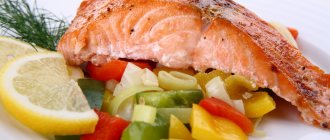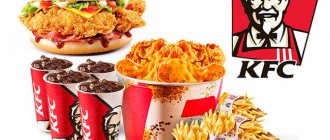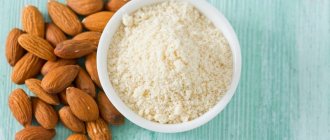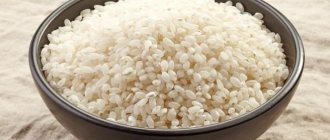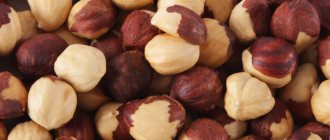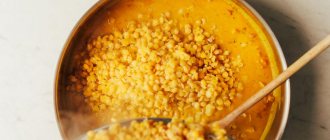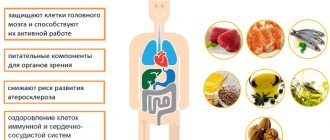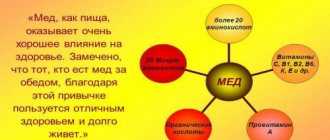Properties of popcorn
How much does popcorn cost (average price for 1 pack)?
Moscow and Moscow region.
35 rub.
Well, how can you imagine watching a movie in a cinema without a red and yellow glass of popcorn? Today, almost every person, coming to a screening of their favorite movie, will definitely buy this tasty delicacy before the start of the film. Meanwhile, popcorn or puffed corn is a snack that consists of corn kernels torn from the inside when heated. The calorie content of popcorn is 407 kcal per hundred grams of the finished product.
The history of popcorn goes back several thousand years, when the ancient American Indians discovered a special type of corn that puffed up when heated. This property can be explained by the distinctive structure of the corn grain, which contains a drop of starch and water. When heated, the liquid begins to boil, the steam explodes the shell, thereby opening the grain and increasing its volume.
Over time, popcorn production became industrialized, most notably when Charles Critors introduced the first compact and mobile popcorn machine in 1885. And 1984 marked the invention of microwave popcorn.
Today, purchasing ready-made popcorn is not difficult, but the best option is to make this airy delicacy at home. It is enough to buy special dry corn kernels intended for making popcorn at home, place the package in the microwave or fry them in a closed frying pan, and then enjoy the finished snack in front of the TV.
In addition, you can show a little imagination and diversify your diet. For example, you can sprinkle a little powdered sugar or salt on the still hot popcorn. To create a French version of this American dish, simply season the popped grains with grated cheese. And if you add a little tomato paste and dried basil to the popcorn, you get an Italian-style treat.
Composition and nutritional value
Popcorn consists mainly of carbohydrates, including starch, fiber and sugar, as well as proteins and fats, a significant part of which are unsaturated fatty acids. In addition to the main nutrients, popcorn contains many different vitamins, minerals and trace elements. The product is rich in potassium, magnesium, iron, calcium, polyphenolic antioxidants and B vitamins.
The ratio of protein, fat and carbohydrates is 9.5%, 16.1% and 74.3% respectively.
While the optimal ratio is considered to be 16-17-67%. Therefore, it is better to combine puffed corn with proteins, and added sugar should be eliminated. The pure product has a calorie content of 375 kcal per 100 g. Once you add sugar, salt, butter and other flavorings to it, the calorie content of popcorn will increase significantly.
The largest amount of popcorn is eaten in movie theaters. A portion of popcorn sometimes costs more than a ticket to a movie show. The volumes of buckets and glasses differ in different places. On average, the smallest 750 ml glass contains approximately 50 g of popcorn, the largest glass takes up 1.5 liters and holds about 100 g of popcorn.
The average bucket of product weighs 150 g, and the largest, five or six-liter, bucket holds 200-250 g of treats. As a result, in one session the viewer can unnoticed consume from 200 to 800 kcal, and this is only if the popcorn is without additives, but in fact in the movies this dessert is often sweet, which significantly increases its calorie content.
Accordingly, in one movie session it is realistic to consume the same amount of kilocalories that constitutes a full three meals a day diet - about 1500-2000 kcal.
Types of popcorn
In general, there are many types of popcorn that can be classified into three categories based on the types of additives. First of all, this is salted popcorn, seasoned with fine table salt, as well as caramelized popcorn, which is puffed corn kernels sprinkled with thick sugar syrup.
In addition, there is another type of popcorn, which includes a completely different product based on cooked corn, flavored with various flavoring additives.
Popcorn in dietetics
A recent study conducted in the USA showed that popcorn contains a large amount of polyphenols, which not only have a beneficial effect on heart and liver health, but also prevent the development of dangerous diseases and also help with weight loss.
It is very important that the popcorn used for the diet is completely clean, without fats, food additives, butter, etc. However, it is allowed to use a small amount of olive oil, sea salt or spice mixtures from dried herbs. Experimenters will certainly appreciate the ability to combine these additives in search of new flavors.
As for the principle of the popcorn diet, it is quite simple: you are allowed to eat exactly as much popcorn as you want.
This is how your need for other products will be significantly reduced and you will not be able to cancel out all your runs and activities with cakes, cookies or rolls. It is allowed to include popcorn in diets based on cabbage, nuts and raisins, as well as carrots and turnips.
The benefits of popcorn
The benefits of popcorn is a rather controversial concept, but from a nutritional point of view, it can be argued that it is a source of high-quality carbohydrates and a complete grain product, since it is based on a rather healthy plant - corn.
When eating popcorn, you feel full and at the same time do not spoil your appetite. This is due to the fact that this product does not stay in the stomach for a long time. In addition, the main benefit of popcorn for the human body, as well as its main advantage, is its high fiber content.
Popcorn without butter calories
Nutritional value and chemical composition of "Unbuttered Popcorn."
| Nutrient | Quantity | Norm** | % of the norm in 100 g | % of the norm in 100 kcal | 100% normal |
| Calorie content | 330 kcal | 1684 kcal | 19.6% | 5.9% | 510 g |
| Squirrels | 11 g | 76 g | 14.5% | 4.4% | 691 g |
| Fats | 4.5 g | 56 g | 8% | 2.4% | 1244 g |
| Carbohydrates | 58 g | 219 g | 26.5% | 8% | 378 g |
The energy value of popcorn made from grains without oil is 330 kcal.
Primary Source: Created in the application by the user. Read more.
** This table shows the average levels of vitamins and minerals for an adult. If you want to know the norms taking into account your gender, age and other factors, then use the “My Healthy Diet” application.
Have you ever come to the cinema and wondered whether to buy popcorn or stick to a glass of Pepsi-Cola without sugar? In this case, the carbonated drink most likely won. But in vain. For some reason, many people consider puffed corn to be harmful and deny themselves this wonderful delicacy. But you shouldn’t deprive watching a movie in a cinema of the special charm that is its essential attribute – popcorn. Its calorie content is not that high.
Popcorn is a storehouse of vitamins
You didn't know this
Despite all the popularity of popcorn, only a small part of people know about the following facts.
- There are 5 types of corn products, but only puffed corn explodes at high temperatures. This is explained by the concentration of water and starch in the grain.
- In ancient times, it was not only eaten, but also used as decoration. The Mayans used popcorn as bracelets and necklaces. Some North Americans used this delicacy to decorate their hair. Even nowadays, some girls use it as jewelry.
- According to studies, this delicacy contains much more protein and silicon than ice cream or crackers with chips.
- Corn grains contain trace elements of gold, which are required by the human body for active and efficient brain function.
- It can be used as a means for losing weight. It contains a lot of fiber, which improves metabolism and reduces the overall concentration of cholesterol in the blood cells. Madonna claims that she was able to lose extra pounds with the help of popcorn.
- There is a so-called popcorn disease. The oil in this delicacy contains diacetyl. People who make puffed corn for a living eventually begin to complain of problems with the respiratory system. About 10 years ago, one American was admitted to the hospital with such complaints. As it turned out, he often cooked it at home in the microwave; the concentration of diacetyl in his kitchen could be compared to industrial levels.
- As mentioned above, puffed corn contains a lot of fiber. Medical experts recommend consuming this delicacy to prevent the development of malignant tumors or, in other words, cancer.
- It is because of him that the microwave oven was invented. Percy Spencer established the fact that popcorn exploded when exposed to microwave radiation, only after which other products were tested. Thanks to popcorn, an American inventor concluded that food could be cooked using microwave ovens.
- Dental experts say popcorn causes serious damage to the entire jaw. Some medical professionals compare it to stones.
- According to statistics, one of the popular causes of death of children from suffocation is eating popcorn. That is why some pediatricians do not recommend giving this treat to a child under 4 years of age.
Benefits and harms of the product
It should be noted that we can talk about the benefits of popcorn only if it is not fried in oil and is consumed in small quantities, for example, 30-50 g. In general, the properties of popped and inside out corn kernels are not very different from fresh or boiled corn. So, this product:
- Helps cleanse the intestines. Toxins are removed from this important organ. It is also cleansed of accumulated carcinogens and harmful chemicals.
- Contains a large amount of fiber. Don’t forget about B vitamins. The product enriches our body with all these essential substances.
- When properly prepared and consumed, it can speed up metabolic processes. This is important when normalizing weight. Of course, portions of popcorn during a diet should be minimal.
- Contains polyphenols, powerful antioxidants. Their use is a prevention of serious diseases of the heart and blood vessels, as well as cancer.
We should also talk about the dangers of such a snack. So, people suffering from stomach ulcers and diabetes will have to completely exclude the product from their menu. They should not eat treats even in minimal portions.
Salted popcorn retains fluid in the human body. It can cause swelling. And sweets can quickly cause excess weight and even obesity.
To prevent popcorn from harming your body, you should prepare it yourself from dried corn kernels. Products sold on supermarket shelves often contain a lot of dangerous fats and all sorts of harmful additives.
What is the keto diet?
The ketogenic diet recommends dramatically cutting down on carbohydrates and replacing them with fat.
This leads to a metabolic state known as ketosis, during which your body uses fat byproducts called ketones (,) for energy in the absence of carbohydrates.
The ketogenic diet is commonly used to help children with epilepsy cope with seizures.
Its use is also associated with health benefits such as weight loss, as well as improved insulin sensitivity, cholesterol levels, and better blood sugar control in people with type 2 diabetes (, , , ).
To achieve ketosis, you generally need to eat less than 50 grams of carbohydrates per day, although some people may need to reduce their carbohydrate intake even further ().
As a result, low-carb foods such as eggs, meat, fatty fish, avocados, olive oil, nuts and seeds, and non-starchy vegetables such as cauliflower, broccoli and bell peppers form the basis of the keto diet.
According to most keto experts, the carb limit refers to net carbs, which are calculated by subtracting the grams of fiber from the total carbohydrates in a serving of food ().
By this logic, whole grains and other fiber-rich carbohydrates contain fewer net carbs than foods without as much fiber, such as refined grains.
Conclusion:
The ketogenic diet involves decreasing your carbohydrate intake and increasing your fat intake so that your body burns fat for energy. This was associated with weight loss, improved blood sugar control, and a reduction in the frequency of epileptic seizures.

